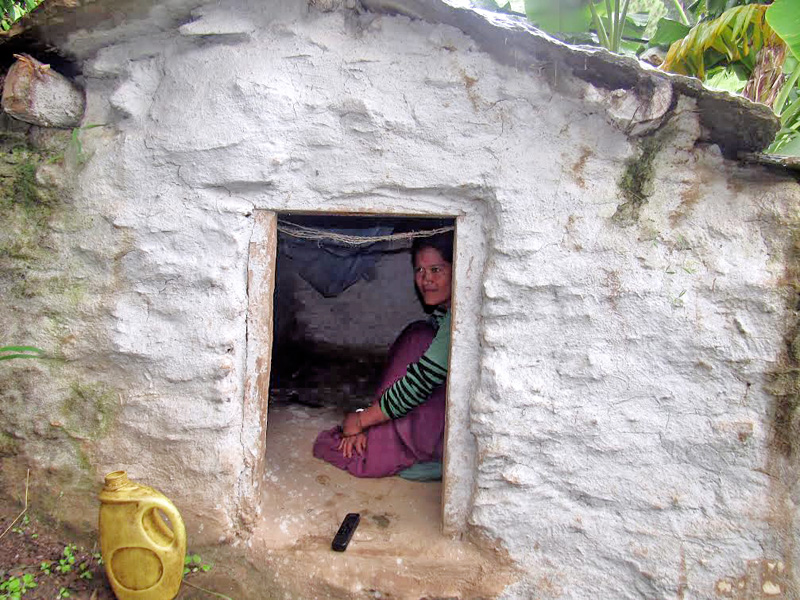Chhaupadi exists in urban areas as well
Kathmandu, May 29
Contrary to the general belief that Chhaupadi — a centuries-old tradition that banishes females from the house during menstruation and is widespread in Nepal’s mid and far-western regions — is prevalent in the villages of the country’s mid and far-western districts, the tradition has been in practice even in the city areas.
Twenty-eight-year-old Bhawani Dhaju of Panauti bazaar is not allowed to enter the kitchen when she is menstruating. By profession, she is a schoolteacher, but she follows what her in-laws tell her to do. “It is our traditional belief that during our menstrual cycle, we females should not enter the kitchen or the temple. Though we realise it is a bad practice, we follow it to show respect to our elders,” said Dhaju.
Fatima Banu from the Muslim community said that during menstruation the female folks from her community are not allowed to pray and read Namaj. They are, however, allowed to enter the kitchen and cook food, she added.
At a time when females require nutritious food the most, they are kept in isolation. It’s not only rural women but also women in urban areas that are subjected to this practice.
According to Radha Paudel, an activist for female reproductive rights, the practice of Chaupadi is not less prevalent in educated families.
“Females who have experienced this eventually tend to impose it on their daughters as well,” she said.
READ ALSO:
- Chhaupadi takes away 15-year-old girl's life in Achham
- Chhaupadi takes its toll on women in Achham
- ‘Chhaupadi-free’ village still follows repealed tradition






